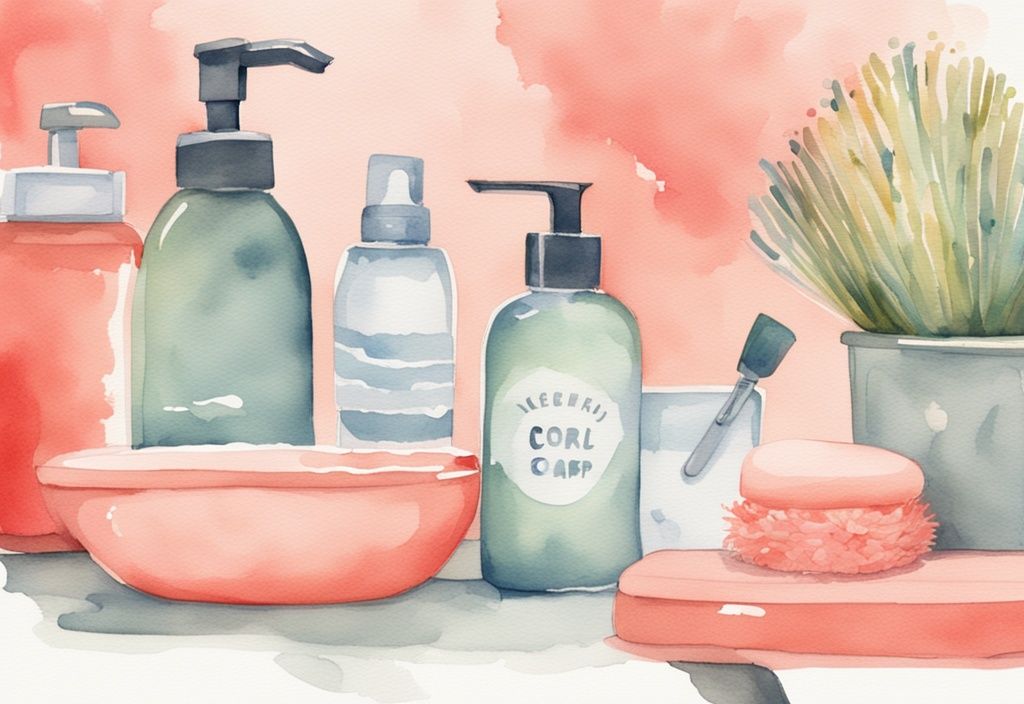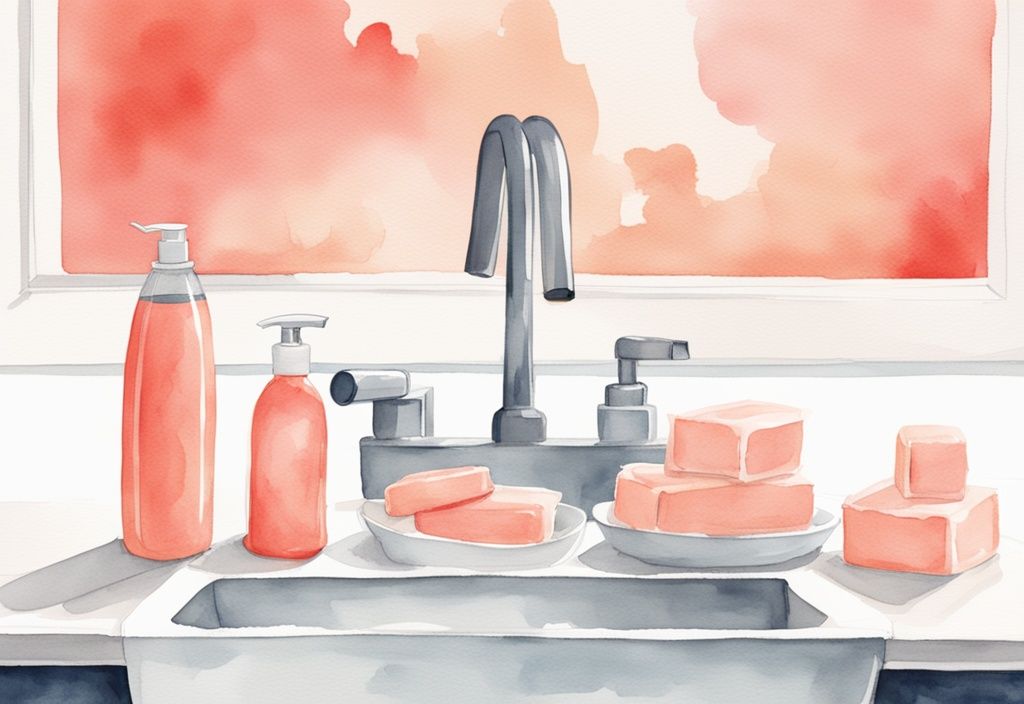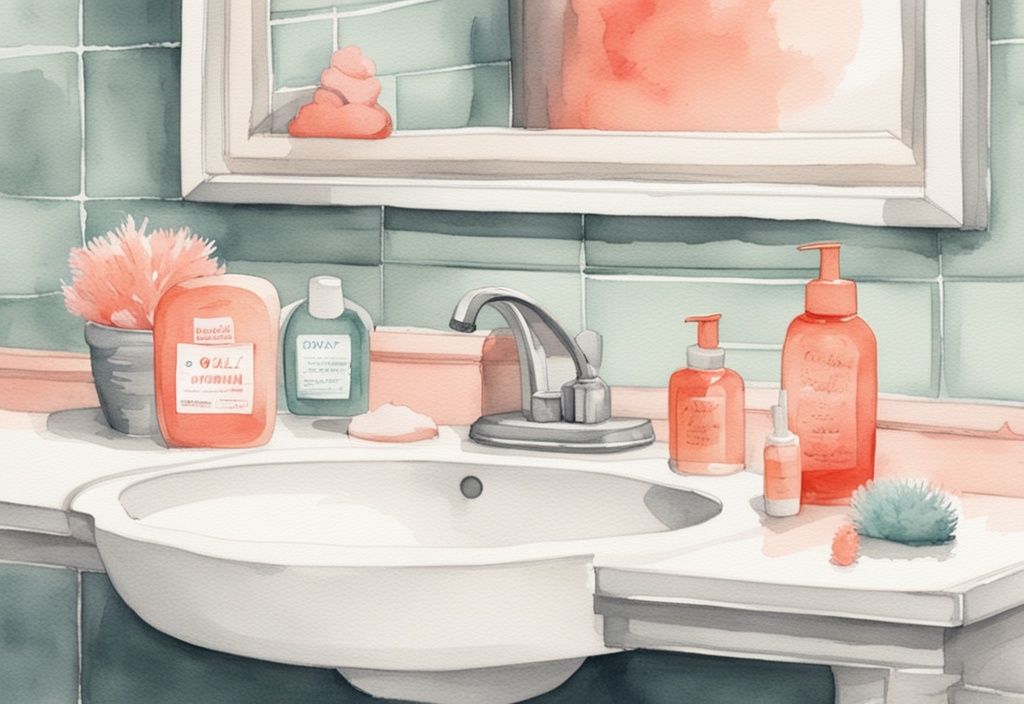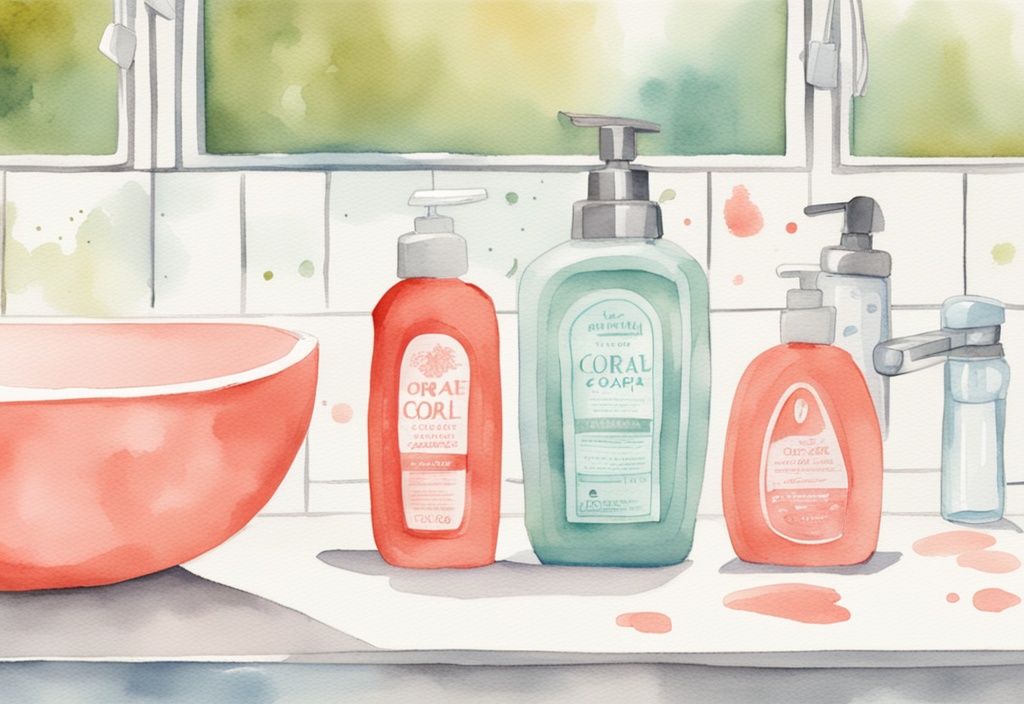Can you believe there are more brands of soap than days in a year? So, when it comes to washing your baby’s bottles, which one should you choose? I’ve asked this same question, and it’s not as hard to answer as you think.
This article will set your mind at ease and take the confusion out of this essential task. You’ll learn about non-toxic options, environmental implications, top-rated brands, and even some nifty DIY alternatives.
Why am I sharing this? Because choosing the right soap for washing baby bottles shouldn’t be another thing to stress you out. Stick around, and let’s navigate this journey together.
The Importance of Choosing Safe Soap for Baby Bottles
Babies have highly sensitive systems, making them more vulnerable to chemicals found in everyday products. This sensitivity underscores the importance of using non-toxic and baby-safe soaps when washing their bottles. Residual soap left on bottles can easily be ingested by your baby, leading to potential health risks. Therefore, the ideal soap should not only be free from harmful chemicals but also rinse completely to ensure no residues remain that could pose a risk to your baby’s health.
Is Your Soap Non-Toxic and Baby-Safe?
When considering what soap can I use to wash baby bottles, it is crucial to look for products specifically labeled as non-toxic. These soaps should be free from Sodium Lauryl Ether Sulfate (SLES), synthetic fragrances, dyes, parabens, and phosphates, which are common chemicals that can be harmful to babies. Understanding the importance of non-toxic products is crucial for your baby’s safety; for more information, check out this guide on non-toxic baby products.
Additionally, make sure the soap has undergone rigorous testing by pediatricians and dermatologists to verify its safety. Certifications or endorsements from reputable health organizations and environmental groups can also provide added assurance that the soap meets high safety and environmental standards.
Hypoallergenic and Dermatologist-Tested: Worth it?
Opting for hypoallergenic soaps is a wise choice as these are specially formulated to minimize the risk of allergic reactions. This is particularly important for baby products, as infants have delicate skin that can easily become irritated.
Soaps that are dermatologist-tested have gone through extensive safety evaluations to ensure they are gentle and safe for infants. These features collectively provide peace of mind, knowing that the soap you are using is designed to be kind to your baby’s sensitive skin.
Environmental Considerations: Plant-Based and Eco-Friendly Soaps
Choosing plant-based soaps when pondering what soap can I use to wash baby bottles can offer several advantages. These soaps are generally safer and more effective for cleaning baby items.
They are biodegradable, meaning they break down naturally in the environment, and come in recyclable packaging, which helps reduce environmental impact. Many brands that produce plant-based soaps also employ sustainable practices in sourcing their ingredients, adding an extra layer of ecological responsibility that benefits overall environmental health.

Top Recommended Soaps for Washing Baby Bottles
This section will guide you through some of the best soap options available for washing baby bottles, ensuring your little one’s health and safety.
Seventh Generation: A Wise Choice?
Seventh Generation stands out as a plant-based, biodegradable soap, making it a thoughtful option for parents wondering what soap can I use to wash baby bottles.
The product is devoid of synthetic fragrances, dyes, and harmful chemicals, safeguarding your baby from potential allergens and toxins. Additionally, Seventh Generation places a significant emphasis on sustainability, utilizing eco-friendly packaging and sustainable practices in its production process.
Dawn and Palmolive Dish Soap: Can They Be Used?
Dawn is renowned for its efficacy in breaking down milk residues and neutralizing odors, making it a popular choice among parents. Similarly, Palmolive is trusted for its cleaning power, although both brands require thorough rinsing to remove any soap residues that might linger.
Palmolive’s recommendation by hospitals underscores its reliability and safety when used properly, providing further assurance to parents considering what soap can I use to wash baby bottles. Additionally, understanding how to accurately weigh your baby at home can provide peace of mind for new parents wanting to monitor their baby’s growth.
Natural Options: Dr. Bronner’s Pure Castile and Babyganics Foaming Dish Soap
When it comes to natural options, Dr. Bronner’s Pure Castile Soap and Babyganics Foaming Dish Soap excel. Dr. Bronner’s is organic, plant-based, and free from synthetic ingredients, ensuring a pure and safe cleaning experience.
Babyganics is specifically crafted for baby use, free from sulfates, parabens, phthalates, and synthetic fragrances. Both brands are committed to eco-friendliness, offering products in recyclable packaging, which aligns with the growing consumer demand for sustainable solutions.
Why Some Parents Choose Method, Dapple, and Sun and Earth
Method, Dapple, and Sun and Earth are favored for their commitment to non-toxic, biodegradable, and plant-based ingredients. Method is celebrated for its environmental responsibility and effective cleaning power.
Dapple is specially formulated for baby bottles, being non-toxic, hypoallergenic, and pediatrician-recommended. Sun and Earth products highlight their natural cleaning strength, free from dyes, fragrances, and harmful chemicals, making them an excellent choice for parents prioritizing their baby’s safety while considering what soap can I use to wash baby bottles.
DIY Alternatives: Safe and Easy Homemade Soap Solutions
When it comes to cleaning baby bottles, finding safe and effective methods is a priority for every parent. The following DIY alternatives offer natural and gentle solutions to keep those bottles spotless and hygienic.
The Power of Vinegar: Is It Safe for Your Baby’s Bottles?
Vinegar is a natural disinfectant that’s incredibly effective in removing residues and bacteria from baby bottles. To keep your baby’s bottles safe, it’s crucial to dilute the vinegar properly. Typically, mix one part vinegar to three parts water. This ensures the solution is both safe and non-irritating.
After washing the bottles with the vinegar solution, make sure to rinse them thoroughly with hot water. This crucial step removes any residual vinegar smell and taste, ensuring the bottles are fresh and ready for your baby’s next feeding.
Baking Soda Solutions: How Effective Are They?
Baking soda is another fantastic alternative, serving as a gentle abrasive that’s perfect for cleaning baby bottles. To create an effective cleaning solution, simply mix a small amount of baking soda with water. Alternatively, you can combine baking soda with a baby-safe soap to boost the cleaning power.

The mild abrasiveness of baking soda helps remove stubborn residues and eliminates odors. After cleaning, ensure you rinse the bottles meticulously. This helps avoid any lingering baking soda particles, which can affect the taste of the milk or formula.
By using these DIY alternatives, you can confidently address the question, “what soap can I use to wash baby bottles?” These natural solutions provide effective and safe methods for keeping your baby’s bottles clean and hygienic.
Baby Bottle Cleaning 101: Effective Washing Techniques
Hand Washing vs Dishwasher: Which is Better for Baby Bottles?
When you’re pondering “what soap can I use to wash baby bottles”, hand washing emerges as a meticulous and immediate option. It’s perfect for ensuring every bit of the bottle is squeaky clean. Using a bottle brush is a game-changer, helping you reach all those hidden spots and leaving no milk residue behind.
For busy parents, dishwashers can be a real lifesaver, as long as the bottles are marked dishwasher safe. Pop the bottles on the top rack to safeguard them from high heat, which might warp them. Remember to go for a gentle or baby-specific dishwashing detergent to prevent harmful residues. Avoid high heat settings to keep the bottle materials intact.
Sterilization Methods: Boiling and Microwave Sterilizers
Boiling is a trusty, age-old method for sterilizing baby bottles. Just immerse the bottles and their parts in boiling water for 5-10 minutes to zap any lingering bacteria. This method is straightforward, but be cautious with handling to avoid burns and damage.
Microwave sterilizers offer a speedier, equally efficient solution. These gadgets use steam to sterilize and are perfect for parents craving convenience. Both boiling and microwave sterilization should be done regularly, especially for infants under three months or those with weaker immune systems. This routine ensures a high level of hygiene, supporting your baby’s health.
When deciding “what soap can I use to wash baby bottles”, always go for non-toxic, baby-safe options to complement your sterilization efforts. Consistent cleaning and sterilization create a secure feeding environment for your baby.
Rinsing and Drying Baby Bottles: Best Practices to Keep in Mind
The Critical Step: Thoroughly Rinsing to Remove Residues
When pondering what soap can I use to wash baby bottles, thorough rinsing becomes crucial. Make sure all soap residues are completely gone, as this ensures the safety of your baby. It’s especially important to use hot water during this process. The heat helps dissolve and flush away any lingering soap particles. Pay extra attention to intricate bottle parts like the nipple, ring, and cap. These areas tend to trap residues, which can pose a risk if ingested. Ensuring these parts are spotless gives you peace of mind that your baby’s bottles are truly clean.
Why Ensuring Bottles Are Fully Dry is Important
Leaving moisture in baby bottles can lead to bacterial and mold growth, risking your baby’s health. To steer clear of this, always use a clean, designated bottle drying rack or towel for air drying. This step allows for complete evaporation of all residual water. Be especially diligent with parts like the nipple and cap, making sure they are thoroughly dry before putting the bottle back together. This simple yet crucial step not only keeps the bottles clean but also helps prolong their longevity.
As you consider what soap can I use to wash baby bottles, remember that thorough rinsing and drying go hand in hand with choosing the right soap. Together, these steps create a safe and hygienic environment for your little one.
Tips on Maintaining Baby Bottles for Prolonged Use
Why You Should Clean Bottles Immediately After Use
Cleaning baby bottles right after use is crucial. Trust me, I’ve been there—milk residue hardens faster than you think, making it a breeding ground for bacteria. By washing bottles immediately, you keep them hygienic and ready for the next feeding, avoiding those nasty odors. So, if you’re wondering what soap can I use to wash baby bottles, opt for a baby-safe, non-toxic soap. It tackles milk residues effectively without leaving harmful chemicals behind.
Preparing New Bottles: The Essential First Time Clean
Bringing home new baby bottles? It’s essential to pamper them with an initial deep clean. Wash all parts—the nipple, ring, and cap—using a baby-safe soap and hot water to remove any manufacturing residues. This initial cleaning step is crucial for your baby’s health. Once they’re squeaky clean, sterilize them by boiling in water for 5-10 minutes or using a sterilizer device. This ensures any remaining contaminants are history, making your bottles safe for use.
When Should You Consider Replacing Baby Bottles and Accessories?
Regularly inspect baby bottles and accessories for signs of wear and tear. Silicone nipples, for example, usually need replacing every 2-3 months. Look out for cracks, discoloration, or other damages—they’re more than minor inconveniences; they can harbor harmful bacteria. Regular replacement of feeding gear ensures a safe and hygienic feeding experience for your baby. So, while you’re pondering what soap can I use to wash baby bottles, remember to periodically refresh your feeding gear to keep everything pristine.

By integrating non-toxic, baby-safe soaps with these proactive maintenance tips, you can significantly prolong the life of your baby bottles. Let’s keep our little ones safe and make bottle cleaning a breeze!
FAQs: Your Questions Answered
Is Using Dawn Dish Soap on Baby Bottles Safe?
Yes, Dawn dish soap can be used to wash baby bottles safely, provided it is thoroughly rinsed off. This soap effectively breaks down milk residue but remember, it must be rinsed well to avoid soap ingestion. Just like giving a bath, make sure no bubbles are left behind to keep it super safe for the little one.
The Frequency of Sterilizing Baby Bottles: What Experts Say
Sterilize new bottles before their first use to remove any manufacturing residues. For infants under 3 months, premature babies, or those with immune issues, sterilize bottles regularly. After three months, weekly sterilization or whenever the baby is sick is sufficient. This process ensures that all the ‘nasties’ are kept at bay, keeping baby healthy and happy.
Homemade Cleaning Solutions: Safe or Unsafe for Baby Bottles?
Homemade solutions like vinegar and baking soda can be safe if used correctly. Make sure to rinse thoroughly to remove any residues that could be harmful or leave a bad taste behind. Steer clear of harsh chemicals or strong abrasives that can damage the bottles. Just like anything for your baby, natural and gentle is the way to go!
What to Do When There’s Soap Residue After Rinsing?
Rinse the bottles again with hot water until all soap residues are removed. A clean bottle brush can help tackle stubborn residues. Ensuring the bottles are fully dry prevents bacteria growth, keeping them hygienic for baby. It’s a little extra effort but so worth it for that peace of mind.
Can Baby Bottles Be Washed in the Dishwasher?
Yes, if the bottles are labeled as dishwasher safe. Place them on the top rack to avoid direct heat exposure, and use a gentle or baby-specific dishwashing detergent. If your dishwasher has a sanitize cycle, that can offer an extra level of cleanliness. It’s a time-saver for those busy days, just like having an extra set of (mechanical) hands!
Conclusion
Ensuring your baby’s health and safety starts with selecting the right soap and cleaning methods for their bottles. When facing the question, “what soap can I use to wash baby bottles?”, it’s essential to prioritize choices that meet non-toxic, hypoallergenic, and eco-friendly standards.
Let’s talk about soap. Babies have heightened sensitivity to chemicals, so it’s vital to steer clear of soaps containing nasties like Sodium Lauryl Ether Sulfate (SLES), synthetic fragrances, dyes, parabens, and phosphates. Reaching for soaps that are certified as non-toxic and endorsed by pediatricians and dermatologists ensures that these products have undergone rigorous safety testing.
The labels “hypoallergenic” and “dermatologist-tested” are more than marketing fluff. These soaps are formulated specifically to minimize allergic reactions and have been extensively tested. This provides peace of mind, knowing they will be gentle on your baby’s delicate skin.
Beyond your baby’s safety, considering the environment is crucial too. Plant-based, biodegradable soaps packaged in recyclable materials help reduce environmental impacts. Brands committed to sustainable ingredient sourcing also contribute positively to our planet’s health. Choosing such products not only protects your baby but supports the world they will grow up in.
Consistent cleaning is key. Proper rinsing and periodic sterilization of baby bottles prevent harmful residues and promote overall hygiene. Quick hand washing using a bottle brush or popping the bottles into a dishwasher with baby-safe settings can ensure thorough cleaning. Don’t forget, rinsing with hot water to remove soap residues and drying bottles completely to fend off bacteria and mold.
In a nutshell, choosing the right soap and maintaining diligent cleaning practices guarantee the longevity of baby bottles and, most importantly, the health and safety of your baby. Always opt for certified non-toxic, hypoallergenic, and environmentally friendly soaps to provide the best care for your little one.


